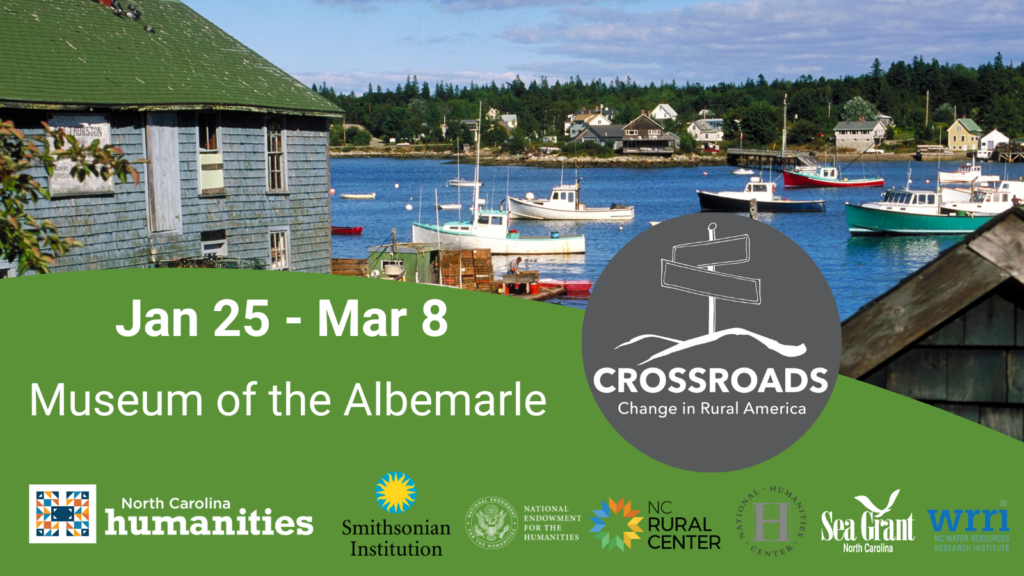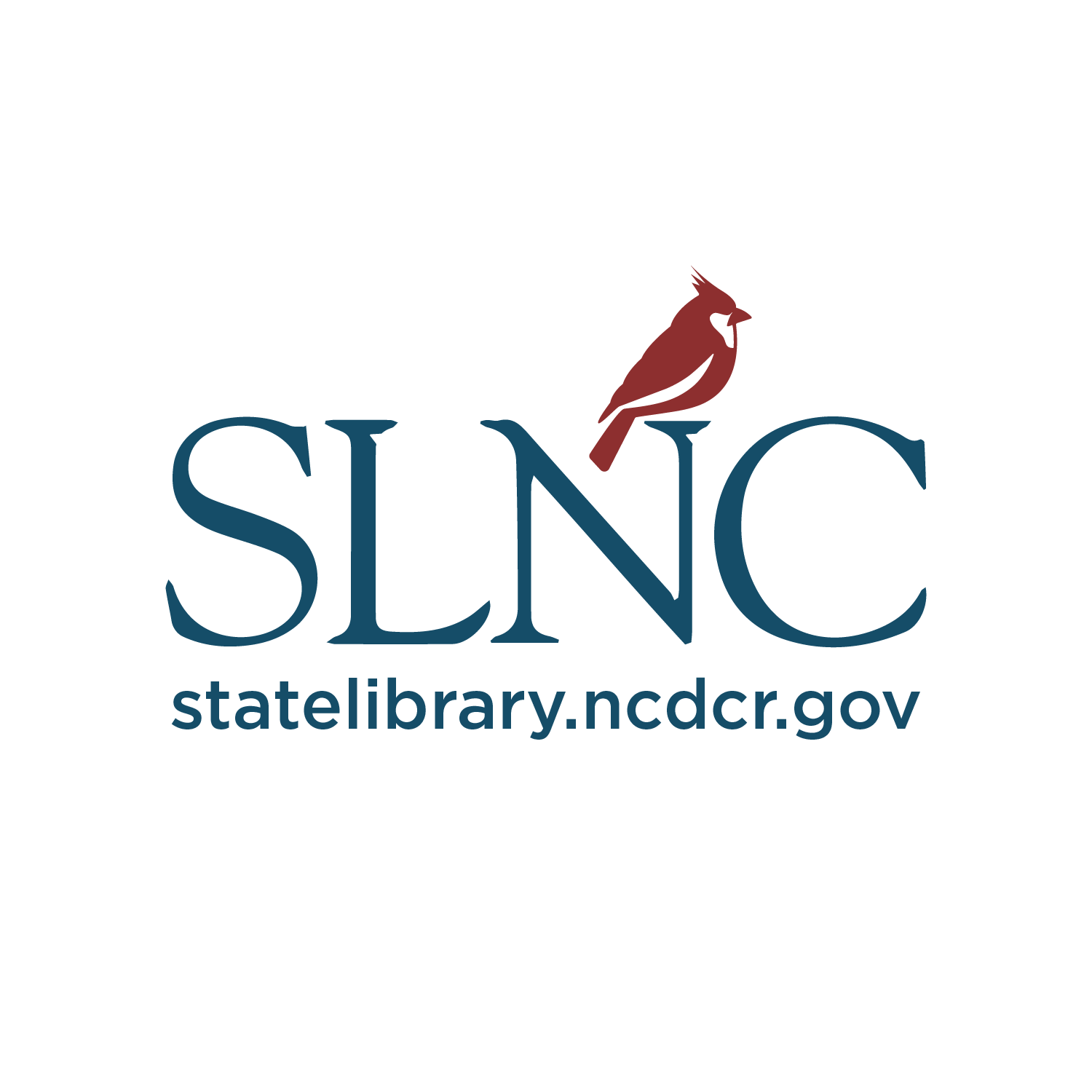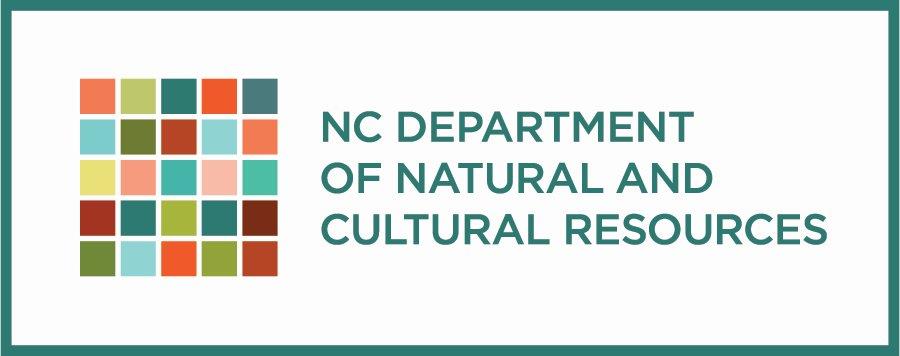 (January, 24 2023) CHARLOTTE, N.C. – North Carolina Humanities is proud to present the Smithsonian Institution exhibition Crossroads: Change in Rural America! The exhibit explores the history of rural America and how rural communities are leveraging their cultural uniqueness as an opportunity for growth and development.
(January, 24 2023) CHARLOTTE, N.C. – North Carolina Humanities is proud to present the Smithsonian Institution exhibition Crossroads: Change in Rural America! The exhibit explores the history of rural America and how rural communities are leveraging their cultural uniqueness as an opportunity for growth and development.
Six venues were selected by NC Humanities to host the exhibit around North Carolina in 2022-2023. As the exhibit travels, we are speaking with team members from each upcoming tour stop to discuss rural North Carolina and what visitors can expect to experience.
Crossroads: Change in Rural America is on display at the Museum of the Albemarle in Elizabeth City, North Carolina from January 25 – March 8, 2023 and is free and open to the public. To learn more about how to visit the exhibit and attend related events and programs in Elizabeth City, visit: https://www.museumofthealbemarle.com/.
We connected with Don Pendergraft, Director of the Museum of the Albemarle, Barbara Putnam, Operations Manager, and Rebecca Stiles, Administrative Assistant, to learn more.
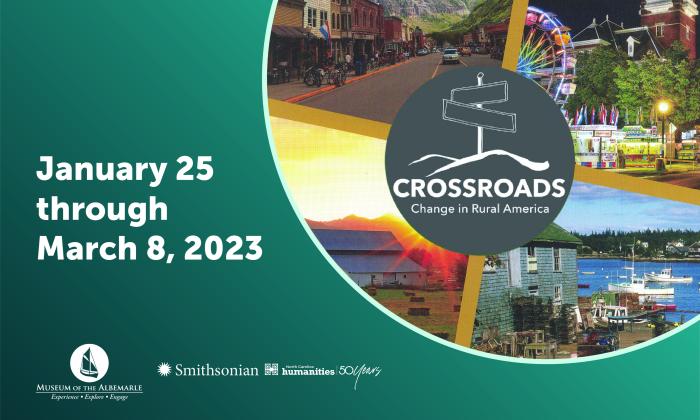
Tell us about the Museum of the Albemarle.
Don: The Museum of the Albemarle collects, records, and retains stories for the future. We are a repository of culture and the residue that is left behind by earlier generations. The museum serves the counties of Bertie, Camden, Chowan, Currituck, Dare, Gates, Hertford, Hyde, Northampton, Pasquotank, Perquimans, Tyrrell, Washington. These are rural or remote, vibrant, agriculturally-based counties. The Museum of the Albemarle represents local residents, their stories, and the story of the Albemarle region.
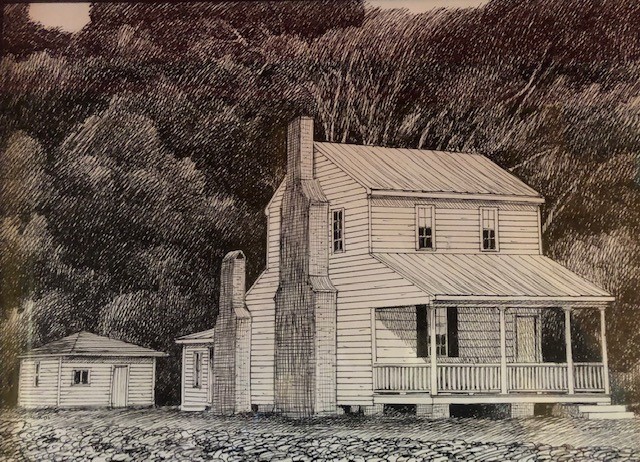 What can people expect to experience when they visit Crossroads in Elizabeth City?
What can people expect to experience when they visit Crossroads in Elizabeth City?
Don: Crossroads will help us start a dialogue about the future. We appreciate North Carolina Humanities for their long-term friendship and for selecting us to host the exhibit. There are a lot of questions in the public’s minds right now about what we should do in the next 20 years, especially concerning infrastructure and planned growth. Do we build bridges to a disappearing island, or do we try to create jetties that will help delay the erosion of the island? We also want people to consider the future of farming. What happens to family farms when we develop land? What happens to small-town economies if we continue to build bypasses?
The museum has a collection of things that were used by past generations but are now no longer used. So, for one of our companion exhibits we are displaying a pea picker, or a soybean harvester, in our lobby. We are accompanying that by displaying a modern John Deer harvester, also called a combine, outside. We hope this contrast will help visitors consider progress and what people may use in the future.
Barbara: We have several other things going on in relation to Crossroads, including a student art contest on country stores, the importance of country stores in our region and what they meant to people. We are also creating a display of photographs entitled Century and Bicentennial Farms of Northeastern North Carolina. You can visit our social media pages to see more #CenturyFarmsFriday! According to the State Agriculture Overview, in 2021 over 45,000 farms were operating in North Carolina, with 8.3 million acres being farmed. As of December 2022, over 1,500 of these farms have been placed on North Carolina’s Century Farm registry, with 186 of these farms located here in the Albemarle region. The same family must have owned farms that have applied for inclusion for over 100 years. Gates County has the largest number in our region, with 48. Over 100 farms in the state have received their certificate as a Bicentennial Farm. Four are within the Albemarle region. The Century and Bicentennial Farms of Northeastern North Carolina display will be open January 24 – November 2023.
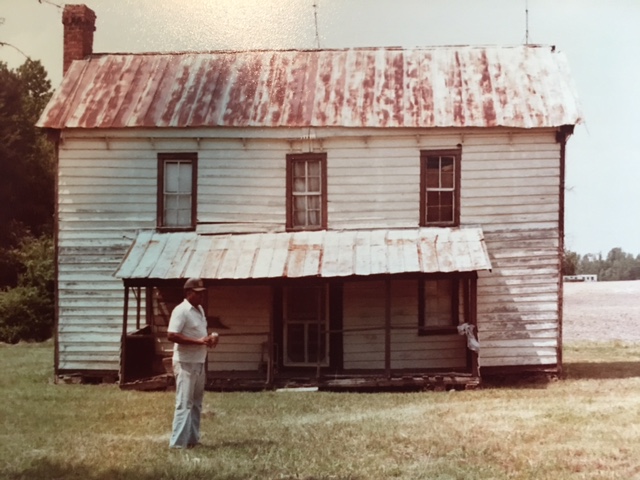 “Rural” means something different depending on where you are in North Carolina. What does “rural” mean to you?
“Rural” means something different depending on where you are in North Carolina. What does “rural” mean to you?
Don: I think rural means being self-sufficient. It means living in a setting where you engage with locally-based stores and places of trade and gathering. It may be a church; it might be a civic center. There is a pride of place for most people in rural communities and a pride of living in North Carolina. Most of North Carolina was rural until about 20 years ago when we had this big boom of people wanting to relocate to our state and be part of the Tar Heel tradition. I think there is a good blending of urban cities and rural communities in North Carolina. It helps those communities like Murfreesboro or Ahoskie, or even Columbia, keep families where they have been for many years and allows them to continue to make a living locally and not have to leave to seek employment in other places.
Rebecca: I relocated to North Carolina from Windsor, Virginia back in 2001, so I moved from one rural area to another. Living in a small town is all I know. I come from a family where my mom grew up on a farm, so I learned from a very early age to be self-sufficient.
Barbara: Having lived in big cities, I grew up in a very small town in New York and moved to Florida, Long Island, and then North Carolina. What rural means to me is community. I think rural communities are more hospitable; people know who you are in a rural community.
Why are the humanities, museums, and exhibits like Crossroads important?
Don: The museum business changed in the mid-’60s when we stopped just talking about the rich and things that they accomplished. Museums now represent everyday people; they are a collective voice of the people. At the museum, we show diversity within the images, stories, and artifacts we have in the galleries. It’s an important story that we tell, but we know that over time museums must make changes. We hope that future generations of museum staff will operate in different ways to share more vital stories to a community that needs to hear how great they were and still are.
How can people support the Museum of the Albemarle?
Barbara: Our non-profit support group, Friends of the Museum of the Albemarle, funds all our exhibit fabrication, artifact conservation, and free educational programs. If you want to become a member of the Friends of the Museum of the Albemarle visit us at: https://www.museumofthealbemarle.com/support/friends-museum-albemarle. We are also always looking for volunteers! We have a junior docent program for middle school and high school aged children too. If you are interested in learning more, check out: https://www.museumofthealbemarle.com/support/volunteer. To keep up with all our programs and events, please follow us on social media, and to be added to our email list contact Rebecca at rebecca.stiles@ncdcr.gov.
At the Crossroads: Exploring Rural America Blog: As Crossroads: Change in Rural America travels around the state, North Carolina Humanities is speaking with each selected venue to talk about rural North Carolina and what their visitors can expect to experience. Crossroads: Change in Rural America is part of Museum on Main Street (MoMS), a unique collaboration between the Smithsonian Institution Traveling Exhibition Service (SITES), state humanities councils across the nation (like North Carolina Humanities), and local exhibit host institutions. To learn more, visit nchumanities.org.
About the Crossroads tour: North Carolina Humanities’ tour of Crossroads: Change in Rural America began at Iredell Museums in Statesville September 2022. From there, the exhibit moved to Joyner Library at East Carolina University in Greenville and Granville County Historical Society and Museum in Oxford. The exhibit is currently on view at the Museum of the Albemarle in Elizabeth City. After, the exhibit travels to Mountain Heritage Center at Western Carolina University in Cullowhee and concludes at Onslow County Museum in Richlands June 2023. Thank you to our statewide tour sponsors: the NC Rural Center, the National Humanities Center, North Carolina Sea Grant, and NC Water Resources Research Institute, as well as the many local sponsors supporting the exhibit in their community. A full tour itinerary is available at nchumanities.org.
This interview has been edited for length and clarity.
Photo Credits: Museum of the Albemarle


